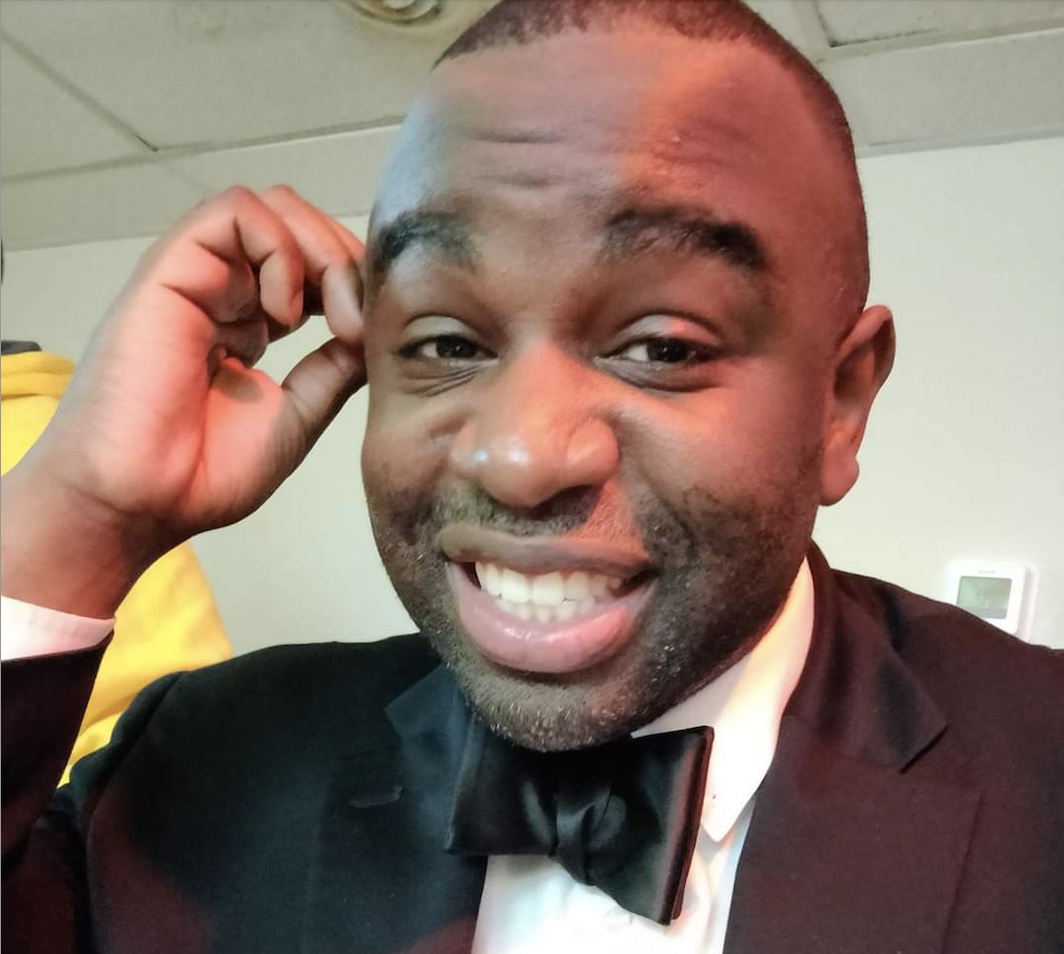By Emily Starbuck Gerson
While Kevin DeShoun Claiborne is now a successful captain in the U.S. Army, his journey to get here wasn’t easy and took incredible amounts of strength and courage.
Claiborne grew up in Petersburg, Virginia, where he graduated from the Appomattox Regional Governor’s School for the Arts and Technology. In high school, Claiborne struggled with his bisexuality — no surprise given our society’s damaging stigma toward bi men.
While bisexual people make up the majority of the LGBTQIA+ community, according to the Human Rights Campaign, less than a fifth are out, compared to 75% of gay and lesbian people. Clairborne also struggled to reconcile how many people in his Black community didn’t support LGBTQIA+ people.
He joined the Reserved Officer Training Corps at Virginia State University while majoring in chemistry, and he commissioned as an Infantry Officer in 2010. While in officer training, Claiborne was sexually assaulted by a superior, which left him feeling broken. But thanks to supportive women in his life, he found the courage to report the incident and heal.
Claiborne is currently stationed at Fort Belvoir with the 1st Information Operations Command. He serves openly and with pride as a Black bisexual survivor of sexual assault, in large part because he feels it’s important to protect and advocate for others. As we conclude Black History Month, this is Claiborne’s story of survival and strength, and what this month means to time.
Modern Military Association of America: When did you come out as bisexual, and what was that experience like?
Kevin DeShoun Claiborne: I first spoke with my mother about this the day before I started my senior year in high school. She told me that she would love me regardless. There were a lot of tears. During that time, I think she felt like a failure, but over the years we have developed a beautifully stronger relationship.
MMAA: Bisexual men often face significant stigma; have you experienced this?
KDC: Absolutely, it builds and maintains trust issues with those I come in contact with, because you don’t want to be mistreated and at times offended.
MMAA: What has your overall experience in the military been like?
KDC: I struggled in Basic Officer Leadership Corps to say the least. However, once I met the requirements, I was very proud to officially be able to serve on active duty. My great uncle, who was serving in the Army at that time, came to my graduation from training. After the graduation, he gave me mentorship and encouragement, but one thing that stood out the most was his advice to not allow who I am to exceed my professionalism.
In his own way, he was attempting to protect me. Having seen me grow up and become the person I am today, he wanted to make sure that something like my sexuality would not give people an opportunity to mistreat me. Though his guidance was from a loving place and concern, I did not take the advice that well. It resonated with me for some time, but I did indirectly witness how some of my peers may have been treated differently because of who they were and carried themselves.
Years later, while stationed at Fort Hood, Texas, I called my uncle and told him that appreciated what he told me. Unfortunately, I experienced sexual assault during my time at the “great place,” and I did my best to fall forward in remaining in service.
Promotions were earned, new job training was completed, and I went to serve with some of the best leaders and Soldiers in the “Old Guard,” in Virginia. While stationed here, I accepted a doctorate of business administration program at the University of North Carolina at Charlotte. During course completion, we were introduced to an article on authentic leadership. I called my uncle and spoke with him about the article and his guidance given at my graduation.
We discussed how conservative the Department of Defense can be, and how authentic leadership still may be in issue with some leadership and their matriculation in the service. As a bisexual officer, there are some areas that are not restrictive in my assumed professionalism. However, I know there are some brothers and sisters that still struggle with the conservative nature of the services and their natural and authentic selves.
MMAA: What are some of the challenges you’ve experienced in your personal life due to your identity as a bisexual Black man?
KDC: I had to realize a few years ago that there are a lot of conservative Black people, whose hatred of those like me are no different than the overt and blatant racism from white people.
There was the mass shooting in 2016 at the Pulse nightclub in Orlando, Florida, and there were so many negative posts from people that identify as African American that stated these people deserved to die.
During this time, the Black Lives Matter movement was developing, and I personally began to feel as if I didn’t want to stand with people who would not equally advocate for my life.
MMAA: Conversely, how does your identity give you strength and power?
KDC: Almost two years ago, I found my father via the DNA company 23andMe. In finding my father at my age, I was able to be more comfortable in presenting myself in this space of us getting to know and love each other. This process in knowing my father, and having the love from my family members, has personally improved my confidence in me carrying myself as an adult.
Professionally, coupled with policy to serve freely, I have been able to be verbal and present to advocate for those who don’t have the voice to stand up for themselves. Especially in the realm of equal opportunity and sexual assault, I have been able to stand up for those who have been mistreated.
In fact, a portion of my decision to move forward in reporting my own sexual assault case was for those who have been taken advantage of by an assailant who felt as though they didn’t have the will to move forward. Though there are major discrepancies with the sexual assault procedures in the Army, at least I know I used my voice to attempt to protect those that have been preyed on at Fort Hood, Texas, and abroad.
MMAA: Did you face additional challenges as a male sexual assault victim in the military?
KDC: As a SHARP survivor, I struggled with the shame of being a male victim. I was taken advantage of by a group of Non-Commissioned Officers at Fort Hood who preyed on junior enlisted Soldiers and young officers.
I ended up managing the anxiety and nightmares with alcohol and sleep medicine. I reached out to a mentor and sister of the National Society of Pershing Angels Sorority, Inc. who made me promise to report my SHARP case the following morning. I was later escorted by a sister of Zeta Phi Beta Sorority, Inc. to the SHARP office. These women, among others in my network, were paramount in keeping me safe and I have remained in contact with them over the years.
MMAA: What are some of the improvements you’ve seen, or would like to see, in the military to better support minority communities?
KDC: Instead of highlighting the improvements, I’d like to recommend that the best support minority communities can ever have will be moving equal opportunity complaints away from Command Policy and into the authority of an unbiased third party. The same for sexual assault policy.
MMAA: As we close out Black History Month, what does it mean to you?
KDC: As a descendent of slaves in America, Black History Month (and Juneteenth) is an opportunity of healing and empowerment. For the most part, our community has been denied reparations, though there is statistically significant data proving descendants of slaves are still impacted by the atrocities on our ancestors.
Black History Month serves as a reminder to never personally give up on being my ancestors’ wildest dream. Also, to remind myself that I have a duty to my community to allow my gifts to make room — and be a blessing — for marginalized communities. In recent years, Stacey Abrams (I call her Queen) has become a hero of mine from her work in Georgia, and I have personally dedicated my gifts to empower marginalized communities to invest and start businesses. In May 2022, I am planning on doing this by conducting a forum at New Cornerstone Baptist Church in Baltimore, Maryland.


